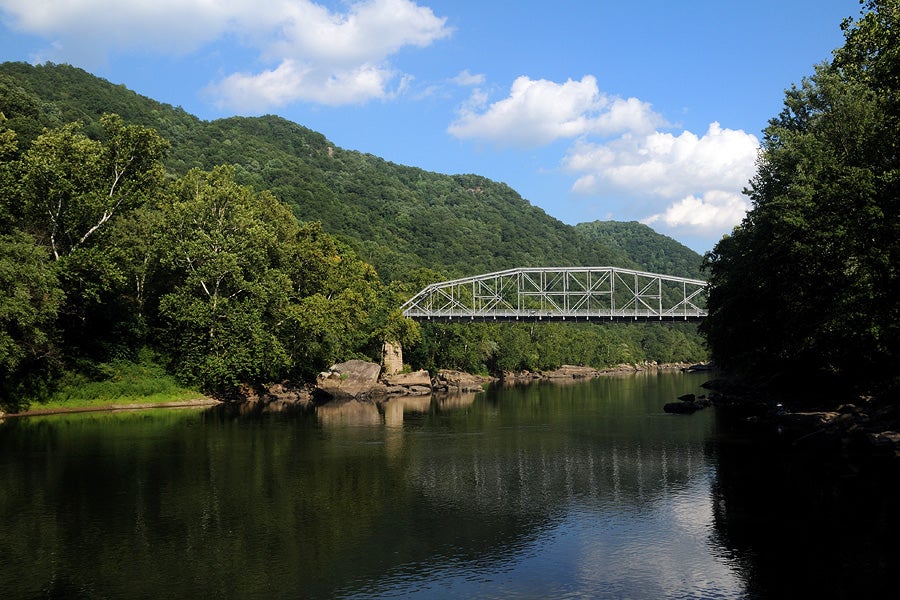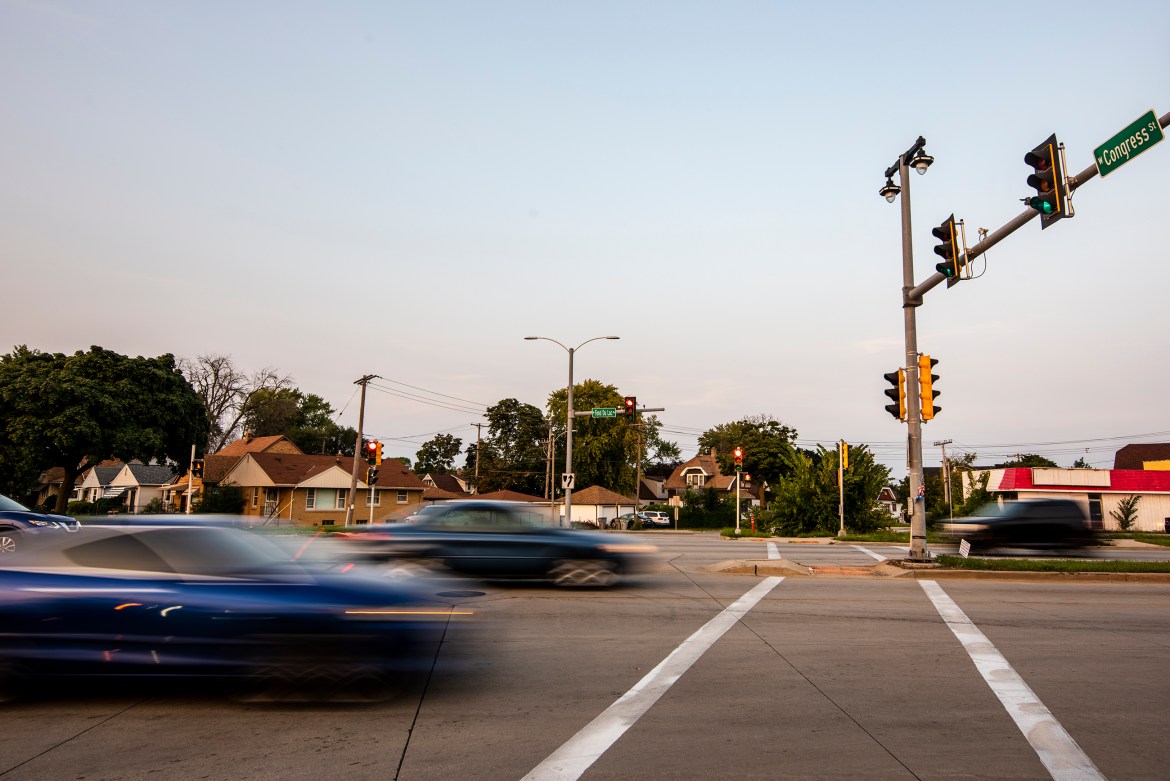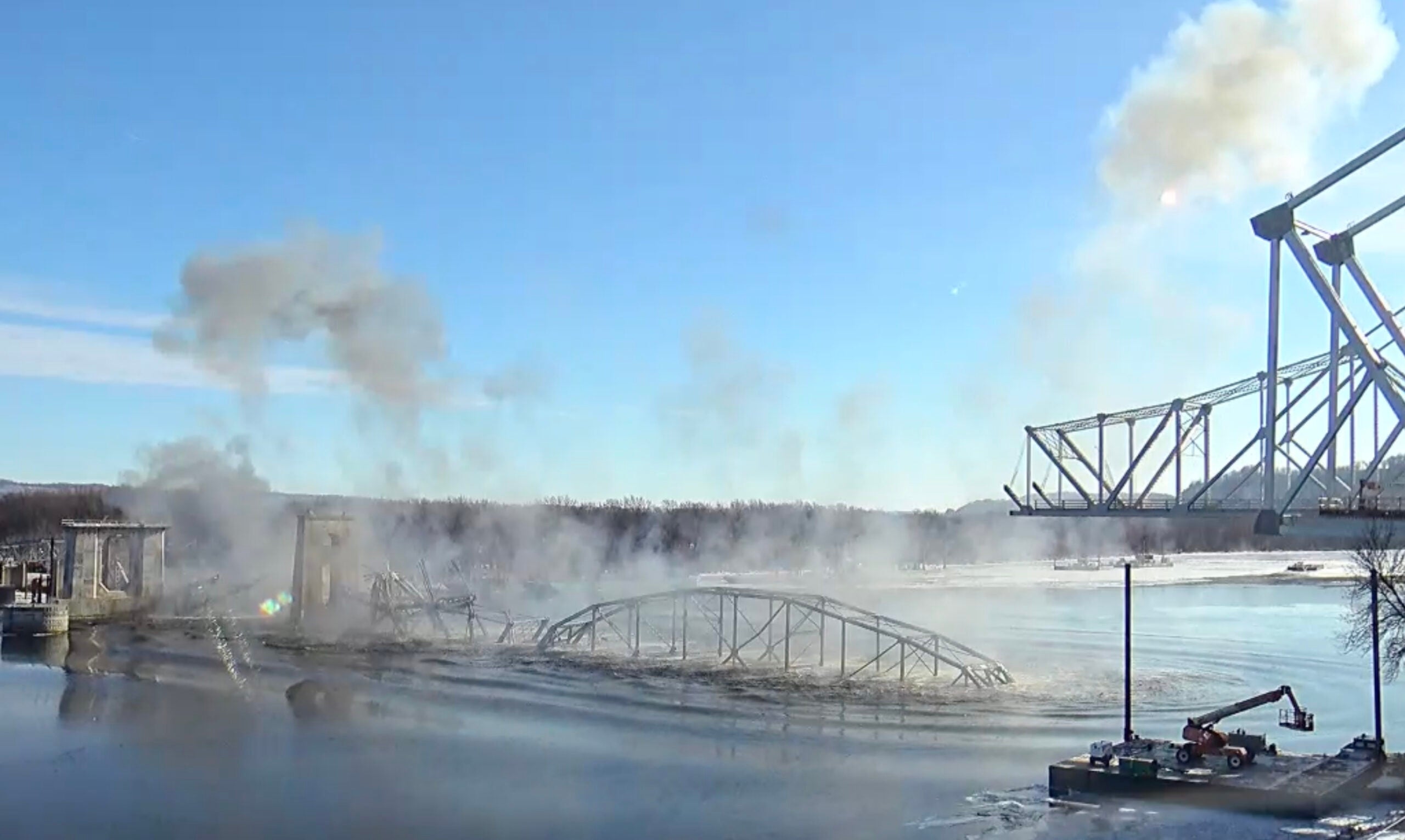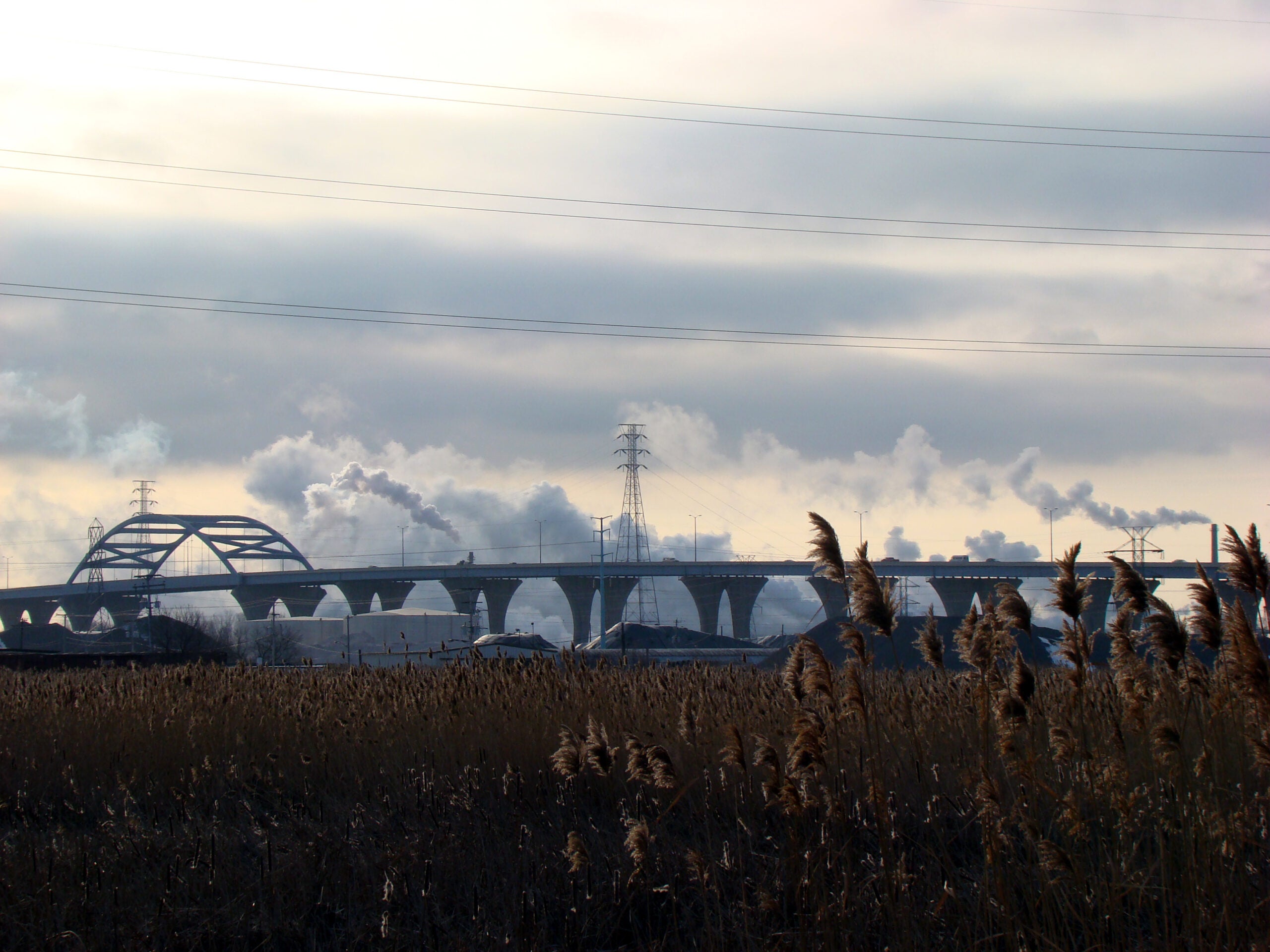The Wisconsin Towns Association is calling on lawmakers to fund a statewide assessment of small bridges. The ask comes after a century-old creek crossing in northern La Crosse County collapsed under a fertilizer truck April 15.
Mike Hesse is chair of the Town of Farmington, the rural community where the crossing on M. Olson Road is located. He said town officials knew some of the beams under the structure were starting to rust and they have been trying to find the funding to repair it.
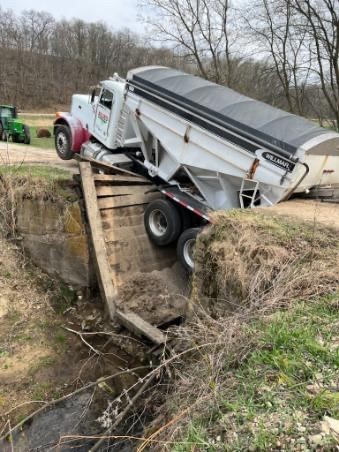
News with a little more humanity
WPR’s “Wisconsin Today” newsletter keeps you connected to the state you love without feeling overwhelmed. No paywall. No agenda. No corporate filter.
The crossing is less than 20 feet in length, which means it doesn’t qualify as a bridge under federal regulations and isn’t eligible for federal funding for repairs or improvements.
“We have been applying for state aid through the local road improvement discretionary grants,” Hesse said. “But the needs are so great that structures like this, on smaller town roads that don’t see a lot of daily use, we just fall through the cracks.”
Hesse said the driver of the truck that collapsed the crossing wasn’t hurt and none of the fertilizer or fuel spilled into the creek. But he said the incident highlights the fact that rural communities like his need more funding to keep up with infrastructure needs, especially as the cost of repairs continues to rise.
Mike Koles, executive director of the Wisconsin Towns Association, said federal regulations require an inventory and regular safety assessments of bridges over 20 feet. But there are no requirements for structures under that length.
Koles estimates there are up to 25,000 of them across the state. The Towns Association is asking the state Legislature to include funding for a statewide inventory and safety assessment of these crossing, which Koles said states like Minnesota and South Dakota have already completed.
“That’s going to identify how big of a problem this is, where the problem is,” he said.
Koles said his organization is also asking state lawmakers to make supplemental funding through the local road improvement program a permanent part of the budget. He said local communities rely on these programs to pay for large construction projects. And he said rural communities could use financial help paying for grant writers to prepare their applications.
“These small communities just do not have access to grant writing. So when you create these funding streams that are competitive grant programs, if you don’t have the capacity to write grants, well it sort of leaves you out of the game,” he said.
Hesse said this has been a problem for his community. Farmington is responsible for 40 miles of roads and their annual road budget is around $124,000. He said that money regularly goes toward replacing gravel on unpaved roads and doing regular maintenance. But they also have to use this funding to hire an engineering firm to write state grant applications if they want to be competitive for infrastructure funding.
“Do we try for (the grant) and probably get turned down? Or should we sealcoat a few more 100 feet of road? These are the choices we end up making,” he said.
Replacing the crossing on M. Olson Road could cost up to $400,000. Hesse said the crossing only serves one farm, which does have other roads accessing it. So if the town isn’t able to get state help, they likely won’t hurry to replace it.
“How can I justify taking two, three, four years of road maintenance and ignoring the other 40 miles of roads? Things will just get worse,” he said. “It’s a challenge.”
Wisconsin Public Radio, © Copyright 2026, Board of Regents of the University of Wisconsin System and Wisconsin Educational Communications Board.

